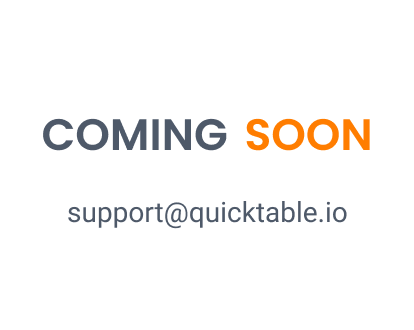JSON to SQL Script Conversion Tool for Large Datasets

Introduction
Upload your JSON file, select the database type and DDL type, and click convert. In just seconds, you'll have your SQL scripts ready to go. Our tool is perfect for anyone dealing with large datasets who needs to convert between JSON and SQL quickly and efficiently.
JSON to SQL Script Conversion Tool for Large Datasets
Introduction
The JSON to SQL Script Conversion Tool for Large Datasets is a powerful tool that allows you to quickly and easily convert large JSON files into SQL scripts. With this tool, you can streamline your data conversion process, saving time and improving efficiency. Whether you're a data analyst, developer, or IT professional, this tool is a must-have for anyone working with large datasets.
Step-by-step guide to use JSON to SQL Script Conversion Tool for Large Datasets
1. Upload your JSON file to the tool.
To begin using our JSON to SQL converter tool, the first step is to upload your JSON file. This can be done by clicking on the "Upload" button and selecting the file from your computer. Alternatively, you can drag and drop the file directly onto the tool. It is important to note that the JSON file must be properly formatted in order for the tool to be able to convert it to SQL. This means that it should contain valid JSON syntax and be structured in a way that corresponds to the database schema you want to create.
2. Select the database type and DDL type you want to use.
Once you have uploaded your JSON file, the next step is to select the database type and DDL type you want to use. The tool supports a variety of popular database systems, including MySQL, PostgreSQL, and Oracle. You will also need to choose the appropriate DDL type based on the structure of your JSON file. The available options include "CREATE TABLE", "CREATE VIEW", and "CREATE INDEX". Depending on the complexity of your JSON data, you may need to use multiple DDL types to create the necessary database schema.
3. Click the convert button.
After selecting the appropriate database type and DDL type, you can click the "Convert" button to begin the conversion process. The tool will analyze your JSON file and generate the corresponding SQL script based on the options you have chosen.
4. Wait a few seconds for the tool to process your data.
The conversion process may take a few seconds to complete, depending on the size and complexity of your JSON file. During this time, the tool will analyze your data and generate the necessary SQL statements to create the database schema. It is important to be patient and wait for the tool to finish processing your data before moving on to the next step. Attempting to download the SQL script before the conversion process is complete may result in errors or incomplete data.
5. Download the resulting SQL script and use it to populate your database.
Once the tool has finished processing your data, you can download the resulting SQL script and use it to populate your database. The script will contain all of the necessary SQL statements to create the tables, views, and indexes specified in your JSON file. Simply copy and paste the SQL script into your preferred database management tool, and execute it to create the database schema. You can then begin populating the database with your data using standard SQL statements.
Alternative Methods
Writing Your Own Script Using a Programming Language
If you have some programming knowledge, you can write your own script to convert JSON files to SQL scripts using a programming language such as Python or Java. This method requires more effort and time than using a pre-built tool, but it allows for more customization and control over the conversion process. Python and Java both have libraries and modules that can be used to parse and convert JSON files to SQL scripts. For example, in Python, the "json" module can be used to read and parse JSON files, and the "sqlite3" module can be used to create and execute SQL queries. Similarly, in Java, the "json-simple" library can be used to parse JSON files, and the "JDBC API" can be used to execute SQL queries. Writing your own script may be a good option if you have specific requirements or formats that are not supported by pre-built tools. However, it requires more technical knowledge and may not be suitable for those who are not familiar with programming languages.
Using an Online Conversion Tool
Another option for converting JSON files to SQL scripts is to use an online conversion tool. These tools are web-based and require no installation or programming knowledge. However, they may not be as powerful or customizable as the JSON to SQL Script Conversion Tool for Large Datasets, and may not support large datasets or complex JSON structures. Some popular online conversion tools include ConvertCSV, JSON to CSV Converter, and Convert JSON to SQL. These tools typically require the user to upload the JSON file and select the output format, such as SQL or CSV. The tool then converts the file and provides a download link for the converted file. Using an online conversion tool may be a good option if you have a small dataset or simple JSON structure, and do not require advanced customization or control over the conversion process. However, it may not be suitable for large or complex datasets, or those with specific requirements that are not supported by the tool.
Conclusion
In conclusion, the JSON to SQL Script Conversion Tool for Large Datasets is an essential tool for anyone working with large datasets. With its powerful features and easy-to-use interface, you can quickly and easily convert your data into SQL scripts, saving time and improving efficiency. Whether you're a data analyst, developer, or IT professional, this tool is a must-have for your data conversion toolkit.